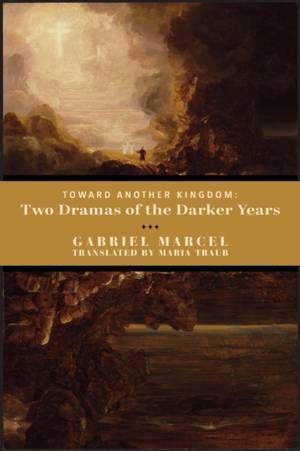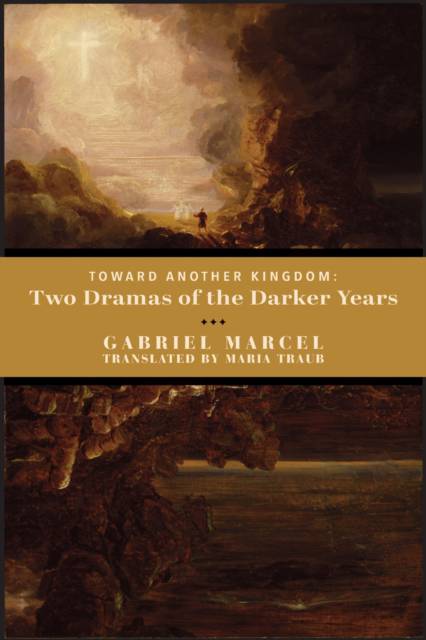
- Afhalen na 1 uur in een winkel met voorraad
- Gratis thuislevering in België vanaf € 30
- Ruim aanbod met 7 miljoen producten
- Afhalen na 1 uur in een winkel met voorraad
- Gratis thuislevering in België vanaf € 30
- Ruim aanbod met 7 miljoen producten
Zoeken
€ 18,95
+ 37 punten
Omschrijving
Maria Traub's translation of Gabriel Marcel's post-war plays is a window into the French philosopher's answer to his own signature questions regarding human existence. And as in the earlier collection of plays, The Invisible Threshold, the realism, passion and sincerity that frame conscience and moral duty in Marcel are most profoundly visible in the day-to-day of family life. Ideas never before presented theatrically emerge in Marcel's characters who struggle to understand their times and how best to live in them. Post-war life was as much a spiritual reckoning as it was a new society, and Marcel's treatment of introspection is a valuable key to his own work. Marcel's dramas require characters to respond authentically and from their true selves. He thereby offers the vision of how individual compromises may build up to break the world and condemn, or, conversely, contribute to the discovery and meaning of relation and redemption. Traub's new translation will interest the player as much as the scholar, and Marcel's aptitude for theatrical writing is proven once again. His intellectual sensitivity creates characters that beckon performance, which is an added dimension to the presentation of the human condition.
Specificaties
Betrokkenen
- Auteur(s):
- Uitgeverij:
Inhoud
- Aantal bladzijden:
- 135
- Taal:
- Engels
Eigenschappen
- Productcode (EAN):
- 9781587318962
- Verschijningsdatum:
- 25/04/2025
- Uitvoering:
- Paperback
- Formaat:
- Trade paperback (VS)
- Afmetingen:
- 152 mm x 229 mm
- Gewicht:
- 453 g

Alleen bij Standaard Boekhandel
+ 37 punten op je klantenkaart van Standaard Boekhandel
Beoordelingen
We publiceren alleen reviews die voldoen aan de voorwaarden voor reviews. Bekijk onze voorwaarden voor reviews.











